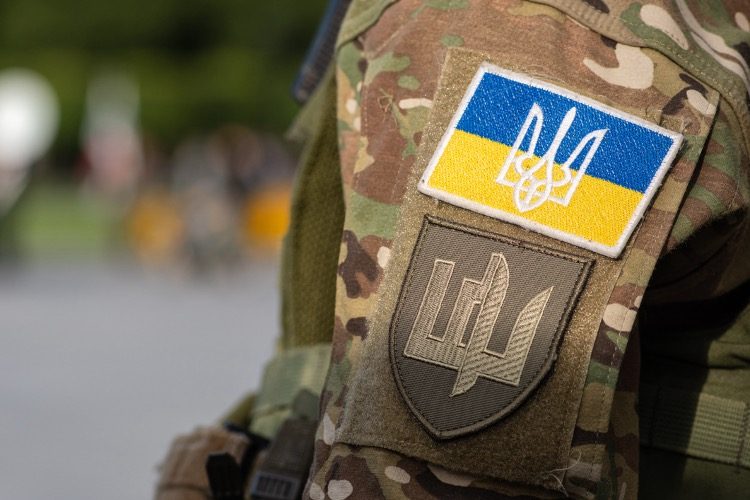
On January 8 local time, Ukrainian Defense Minister Rustem Umerov declared that an internal probe of the country’s military procurement practices unveiled $262 million in theft-related costs, with alleged perpetrators facing a possible criminal prosecution amid a crackdown on corruption.
Umerov revealed the outcome of an investigation that began when he assumed his role four months ago. He said the ministry was working to purge the country’s military of “unscrupulous participants, inside and outside the institution,” as well as cooperating with law-enforcement agencies to punish corrupt officials.
“We are eradicating corruption,” Umerov maintained. “The system resists, but we will overcome it.” He added that news of corruption arrests and prosecutions will become more prevalent, and a new “procurement architecture,” premised on NATO standards, will help avert future theft.
Ukraine regularly ranks as one of the world’s most corrupt countries, based on figures from Transparency International. A CBS News report in August 2022 revealed that waste and corruption were preventing about 70 percent of Western arms sent to Kyiv from making it to the battlefield. When Ukrainian President Volodymyr Zelensky introduced Umerov as the country’s new defense minister last September, he singled out curbing corruption as one of the five key priorities for his job.
Umerov said that the Defense Ministry worked with the Security Service of Ukraine (SBU) last month to foil a corruption plot entailing a $39 million ammunition transaction. Changes in procurement practices helped salvage about $92 million, or 20 percent, on non-weapons purchases. For example, talks on the purchase of headphones reduced the price by more than $300,000.
“We are rebuilding procurement mechanisms to ensure the continued delivery of weapons and non-lethal supplies to the armed forces,” Umerov said. “From now on, the Defense Ministry sets the rules of the game, forms policy and controls bidding.”
Under Umerov’s predecessor, Aleksey Reznikov, the Ukrainian military witnessed various corruption scandals, including food purchases at inflated prices and the acquisition of jackets that purportedly almost tripled in cost between when they were transported and when they were delivered. Zelensky fired the directors of Ukraine’s 33 military recruitment centers in August because they allegedly received bribes to sign off on bogus medical exemptions for would-be soldiers who were keen on avoiding military draft.
In late December, Mykhailo Podolyak, a senior aide to Zelensky, stated that public officials in Ukraine continue to be corrupt despite the country’s ongoing conflict with Russia, elaborating that bribes remain a socially acceptable norm.
Asked if Ukrainian officials grasped the seriousness of Ukraine’s situation amid the conflict, Podolyak told “We — Ukraine” TV: “If you’re living in a certain environment … where it is considered really cool to be able to take bribes and buy yourself [anything you want] when everyone else is in a … difficult situation or to just increase your wealth … everyone in your circle will consider [you to be] a ‘successful person,’” Podolyak explained, arguing that this is the mindset of a “certain layer of the Ukrainian population.”
In December, the Washington Post reported that draft-age Ukrainians were unwilling to fight for Zelensky’s “corrupt government” and were dodging conscription through bribery, forgery, and perilous attempts to escape to neighboring countries.
Within days of Russian troops entering Ukraine, Zelensky ordered the country’s borders sealed for men aged 18-60, sending extra guards to the frontiers to prevent potential soldiers from leaving. With Zelensky’s former aide maintaining late last year that Ukraine had lost as many as 300,000 soldiers, the country is running out of fresh conscripts for its conflict with Russia.
“Honestly, we need more soldiers. The professional military personnel are running out,” an assault team leader with Ukraine’s 68th Brigade told the Post.
Kyiv has repeatedly expanded its conscription efforts, taking in older men and those previously regarded as unsuitable to fight. Ukrainian authorities have already ditched a rule exempting men under 28 with no previous military experience from the draft, yet various civilians in this category told the Post in December that they had no plans to show up.
A 20-year-old man said that he was “not eager to risk his life in the military, given stories he has heard from friends in the ranks about insufficient training and endemic corruption, such as paying bribes to officers to receive vacation leave,” the Post reported, noting that “many are less than eager to fight for a military and national government that is viewed as rife with corruption and incompetence.”
Faced with battlefield conditions often portrayed as a “meat grinder,” as many as 650,000 conscription-aged men have fled Ukraine, the BBC recently reported, while “hundreds of thousands” more are dodging service within the country, Deputy Defense Minister Natalya Kalmykova stated in October.
Those escaping hide in cars, bribe border guards, or trek through forests and cross rivers to enter neighboring Romania, the Post reported. Guides reportedly provide safe passage through the wilderness for $1,200 and more, while “the going rate for bribing a guard on the Moldovan border is $300.” Those staying in Ukraine often bribe military officials for papers designating them as exempt from service.
“Even if you’re missing a leg, they’ll say you can still fly drones,” one deserter told the newspaper, explaining that he fled to Romania as “ordinary Ukrainians are fighting and dying while members of parliament and other elites cruise around in Mercedes and other fancy cars,” in the Post’s words. Others did not make a successful escape from the country, including a 46-year-old man who froze to death last month.
The manpower shortage has dampened Ukraine’s ability to recapture land from Russian forces. Speaking to the BBC last year, a Ukrainian soldier said that several brigades had been promised to his men to stage an operation into the Russian-held eastern bank of the Dnieper River near Kherson. Instead, he said that he received only some individual companies of young conscripts.
“We need people, but trained people, not the green ones we have there now,” he told the British broadcaster. “There are guys who had spent just three weeks in training, and only managed to shoot a few times,” he continued, adding that “some of our marines can’t even swim.”


